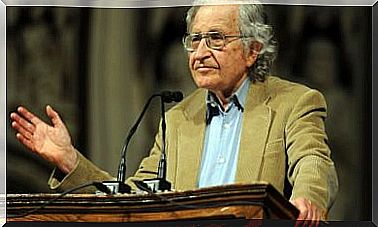When You Should Trust Your Intuition

In the hustle and bustle of everyday life, you may find it difficult to be sensitive to your inner spiritual guide. When you plan what to do during the day and set yourself up for this, it is not easy to listen to what your intuition is trying to tell you. However, you make a mistake in ignoring your inner voice, because it can help you live an optimal life. In today’s article, we will present some strategies for learning to trust your intuition.
Plato believed that intuition was the highest form of intelligence. He argued that it was a way of acquiring knowledge that could not be gained through observation, experience, inference or reason. But what is it really about and how do you know when you can trust your intuition ? Webster’s dictionary defines intuition as “the power or ability to attain direct knowledge or insight without apparent rational deliberation or inference.”
The best way to work with your intuition may be to ask yourself a few questions. Am I happy? Am I satisfied? Your intuition can help you dig deeper into these two issues. This allows you to make the necessary changes and answer them with a resounding “Yes!”.
The first psychological study on intuition has been attributed to the Swiss psychiatrist Carl Jung, who believed that intuition is a dimension of a person’s personality. He believed that people who listen to their intuition are more likely to let their thoughts control their own experiences. The opposite is a more “bottom-up” approach to life, where decisions are based on data. People who rely on their intuition let their own thoughts and feelings take over.

Where in the brain do you find intuition?
A group of experts at the University of Iowa conducted a study that showed that the “axis of intuition” is located in the prefrontal cortex of the brain. The technical term for this area is ventromedial prefrontal cortex (vmPFC).
A good illustration is the comic books and movies about the X-Men. How does Professor X invoke his psychic powers? Yes, he brings his fingertips to his temples and closes his eyes. Then energy waves radiate from the center of his forehead in all directions. Right there, in the middle of the forehead, the axis of intuition is located.
The study mentions that the key to success lies in high intelligence. But this is not always true. Because there are people with very high IQ who have a hard time making decisions. Maybe this is because they have some limitations regarding their intuition.
To dismiss intuition as something useless, especially when the amount of information is so immense that it is impossible to process it in an analytical and conscious way, is to give up the best tool one has access to in these situations. Without intuition, one becomes more gullible and more easily falls victim to persuasion. And, as if this were not enough, the study also revealed that without intuition it is more difficult to learn from one’s mistakes.
Meditation is the best way to get in touch with your intuition
Learning to trust your intuition is, as with other habits, something that requires practice, commitment and dedication. You may think it sounds complicated, but the process is easier than you think. In addition, it is very satisfying, for intuition is a kind of emotional conjecture or premonition that you can refine with a few uncomplicated techniques.
Allan Wallace is a Tibetan Buddhist and author of the book Embracing Mind: The Common Ground of Science and Spirituality. He believes that you can develop your intuition with meditation. This basic technique helps you focus and calm your mind, while freeing yourself from lingering thoughts that get in the way of your intuition.

What role does meditation play?
Meditation is, in short, a method of training your mind. It can give you greater emotional freedom by making you connect with your surroundings and open yourself to your own experiences. This ancient technique can help you relax and achieve a state of mental clarity. The more you practice achieving this state, the better you will be at making good decisions.
A neuropsychologist at Wake Forest University determined that study participants were able to increase their brain activity through meditation. Technically speaking, they improved the interconnectivity of the prefrontal cortex. This is the area responsible for behavior control and decision making. What does this mean for us who want to work on making better decisions?
These results show how meditation can put you in direct connection with your extremely powerful but elusive sense of inner knowledge. Meditation can help you live a life that, among other things, gives you the chance for better financial opportunities, good relationships and a fantastic job. In addition, it can be good for your health! If those who practice meditation often pursue their ambitions, the same can apply to you.








